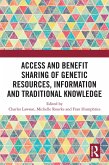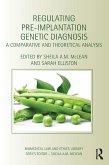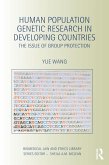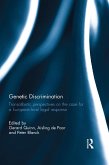This book shows that the access to plant genetic resources and the compliance to the objectives of the Convention on Biological Diversity can only be realized in this biotechnological era, through the balance of rights and duties of States and stakeholders. This book suggests that the global partnership as professed in the United Nations Conference on Environment and Development in 1992 has so far not been reached. It examines the possibility of achieving the global partnership through clear, fair, ethical and equitable biopartnerships in, between and among States.The author analyzes international instruments and national laws dealing with patents, plant breeders' rights, farmers' rights and sui generis protection and shows how they affect developing countries rich in biodiversity and traditional knowledge, such as Brazil. She raises awareness to problems derived from the patenting of genetic resources, plants and traditional knowledge and presents sui generis alternatives proposed by different sectors of society in several countries.The book critically examines five biopartnerships of countries on four different continents. The author proposes measures to protect traditional knowledge and innovations and suggests ways where indigenous peoples, traditional farmers and developing countries may achieve an equitable share of benefits for their contribution in the development of new medicines, foods, and other applications.
Dieser Download kann aus rechtlichen Gründen nur mit Rechnungsadresse in A, B, BG, CY, CZ, D, DK, EW, E, FIN, F, GR, HR, H, IRL, I, LT, L, LR, M, NL, PL, P, R, S, SLO, SK ausgeliefert werden.









